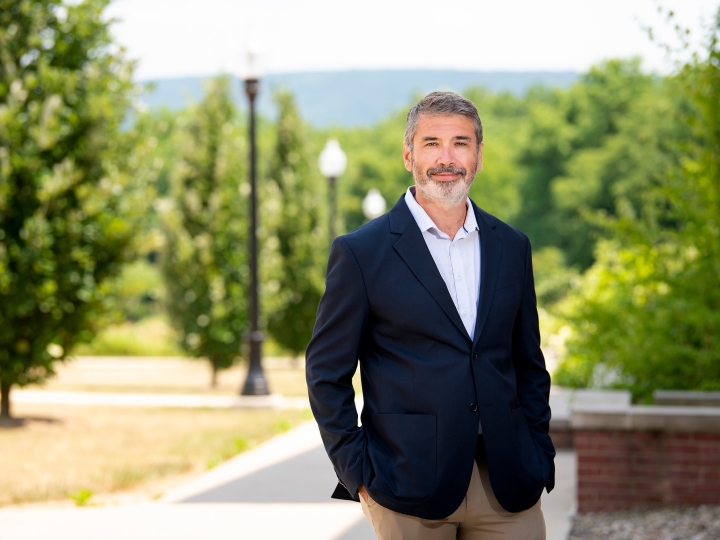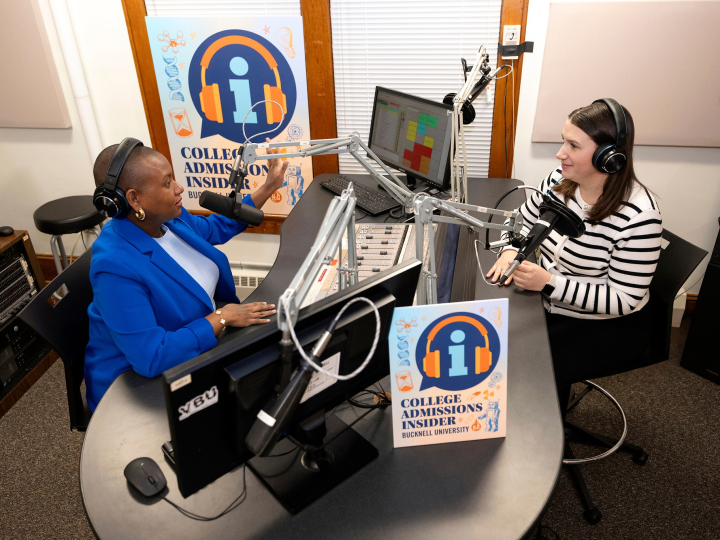Professor Tulu Bayar Named Fulbright Scholar
February 20, 2017
The idea of life in the suburbs has long been a part of American culture, but in recent years, it's also starting to catch on in developing countries. In September, Professor Tulu Bayar, art & art history, will travel to her native Turkey to document the people who are part of the fundamental shift that is, for the first time, seeing people settle somewhere in between large urban centers and isolated rural areas.
Bayar has been awarded a 2017-18 Fulbright US Scholar Grant, which she will use to examine the increasing role of suburbs and suburban life in Istanbul through the lens of visual art.
Bayar described the project, "The Suburbs of Istanbul," as a "web-based interactive documentary." It will examine the increasing population and identity of suburban Istanbul through the eyes of the people who live there, using a unique combination of portraits, photography, video, soundscapes and data visualizations. Bayar calls it a "participatory artwork."
"It will be an interactive, online project, in which many different elements can be viewed at once through an interface that anyone can access," she said. "It's a nontraditional dissemination of traditional information."
Born and raised in Turkey, Bayar came to the United States at age 26 as a graduate student to study studio art with a concentration in photography and electronic media. Her then-boyfriend and now husband joined her a short time later and found a job of his own, and the couple decided to stay after they both completed graduate degrees. Bayar chose to pursue to permanent residence status when she was offered a position at Bucknell in 2002, and her U.S. citizenship was finalized in 2010.
Despite not living in Turkey for many years, Bayar believes she has seen firsthand the fundamental shift in how and where people in Istanbul live their lives.
"It was starting to happen about 30 years ago when I was still living there, so I feel like I experienced the initial change," Bayar said, and as she's kept in touch with and visited friends and extended family, she sees that virtually all of them are now affected by the shift in city-to-suburban living.
"Over the years I've visited Turkey, but not regularly, so every time I went for a visit, the landscape and lifestyles were very different," Bayar said. "It strikes me almost as inevitable, in a country like Turkey and a city like Istanbul, that there's constant change. It's almost interwoven in the culture, with more Westernized ideas mingling with more traditional, conservative ideology."
Bayar hopes the project will serve as an entry point to discussion about the differences between the ideas of the suburbs in countries like the United States and developing countries like Turkey. In developing countries, Bayar said, suburban sprawl tends to go up instead of out.
"The suburbs of Istanbul are all vertical, not horizontal, in the way they're laid out — not like how you see neighborhoods here in America," Bayar said. "In Turkey, you drive away from the center of the city for half an hour and arrive at this 'satellite' city, and you see 30- or 40-story apartment buildings that everyone is moving to.
"For many years, there was no in-between. The country had these areas that were either very rural or very urban. But now we're seeing that in-between," Bayar added. "It's a very visible observation, and it's been in my mind for a while, which is why I want to explore it with this project."
The Future of Documentary Work
The visual aspect of the project — portraits, data visualizations and more — is only one component of "The Suburbs of Istanbul"; there also will be a live feed connected to interface and frequent photo uploads, so viewers can see the lives of the participants in real time. Bayar believes that this type of interaction one in which participant and viewer alike are part of the narrative — is the future of documentary work.
"It's not a traditional documentary in a linear narrative," she said. "Viewers will have access to this documentary without just sitting still for two hours to watch it. They can click around and visit different parts of the site and learn different things and see real-time updates, which will reveal some interesting things and challenge the traditional idea that suburban residents are all alike."
The framework of "The Suburbs of Istanbul" also is the heart of Bayar's work as an artist, which she said she has always centered around issues like identity politics, gender and race.
The project felt like a natural fit, she said, because it aims to examine the lives of the participants on a deeper level and raise questions about why they are a part of such a fundamental shift.
Bayar also hopes the project can influence her future teachings at Bucknell, and perhaps even be replicated here.
"I hope that insights from this new experience will contribute to the content I teach in the future, like a class that would focus on this type of non-linear, interactive web documentary," she said. "I can see using it in our own Bucknell community. The wonderful thing about the project is that it can be replicated anywhere, in any city or town or college campus."

